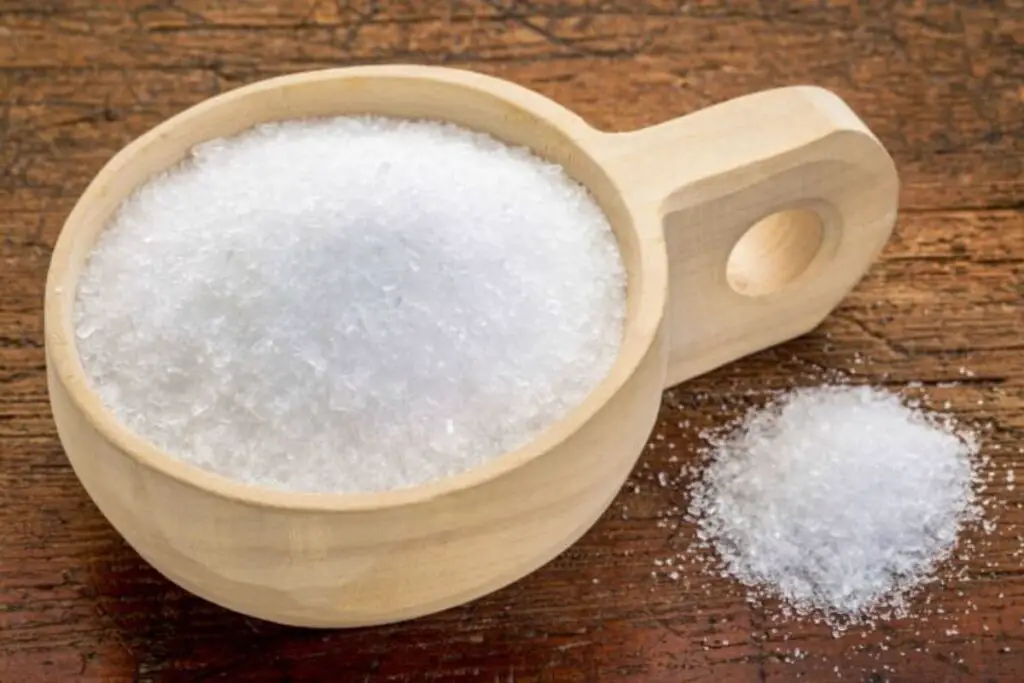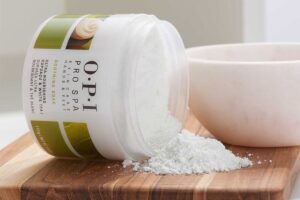Epsom salt, scientifically known as magnesium sulfate, has been celebrated for its therapeutic properties for centuries. It’s a versatile compound used in various wellness practices, from soothing sore muscles to promoting relaxation. Many individuals wonder if they can expand its use to their hair care routine by washing their hair in an Epsom salt bath. In this comprehensive guide, we will explore the potential benefits, considerations, and proper techniques for incorporating Epsom salt into your hair care routine.
Understanding Epsom Salt
Epsom salt, scientifically known as magnesium sulfate, is a naturally occurring mineral compound that has gained popularity for its various applications in wellness, health, and beauty. To truly appreciate Epsom salt’s versatility, it’s important to understand its origins, composition, and the myriad ways in which it can be used.

The Origins of Epsom Salt
Epsom salt is named after the town of Epsom in Surrey, England, where it was first discovered in mineral-rich springs during the early 17th century. The compound received its name from the town and the “salt” reference, despite it not being a true salt in the chemical sense. Its rich history includes a legacy of wellness and therapeutic use, leading to its enduring popularity.
Composition of Epsom Salt
Epsom salt is composed of two key elements:
Magnesium:
Magnesium is an essential mineral that plays a crucial role in various bodily functions, including muscle and nerve function, bone health, and heart rhythm regulation. It is absorbed through both the skin and the digestive system.
Sulfate:
Sulfate is a natural component of healthy connective tissues and is vital for detoxifying the body, among other functions. Like magnesium, sulfate can be absorbed through the skin.
Versatile Uses of Epsom Salt
Epsom salt’s versatility lies in its wide range of applications, making it a staple in many households. Some of its primary uses include:
1. Bath Soaks
Epsom salt is perhaps most famous for its use in bath soaks. Dissolving Epsom salt in warm water can create a soothing and relaxing bath that may alleviate muscle soreness, reduce stress, and promote overall relaxation.
2. Muscle Relief
Many individuals use Epsom salt to soothe sore muscles and alleviate muscle cramps. The magnesium in Epsom salt can help relax muscles and ease tension.
3. Skin Care
Epsom salt can be used as an exfoliant to remove dead skin cells, leaving the skin feeling soft and refreshed. It is often incorporated into facial and body scrubs.
4. Foot Soaks
Foot soaks with Epsom salt are a popular remedy for tired and achy feet. They can help reduce swelling and provide relief after a long day.
5. Fertilizer
Epsom salt is used in gardening as a natural fertilizer. Its magnesium and sulfate content can enhance plant growth and nutrient absorption.
6. Constipation Relief
Taken orally, Epsom salt can act as a laxative to relieve occasional constipation. However, it should be used with caution and under the guidance of a healthcare professional.
Potential Benefits of Epsom Salt for Hair
Before diving into the specifics of washing your hair with Epsom salt, it’s important to understand the potential benefits:
1. Scalp Health
Epsom salt can help exfoliate the scalp, removing dead skin cells, excess oil, and product buildup. This can contribute to a healthier scalp environment, potentially reducing dandruff and itchiness.
2. Hair Volume
Some individuals report that Epsom salt can add volume to their hair. When used in moderation, it may help remove excess oils and contribute to a fuller appearance.
3. Natural Curl Enhancer
Epsom salt has been used by individuals with wavy or curly hair to enhance their natural texture. When applied correctly, it can help create defined curls.
4. Hair Growth
There is some anecdotal evidence that Epsom salt may promote hair growth by increasing circulation to the hair follicles. This, in turn, could potentially lead to healthier and faster-growing hair.
Washing Your Hair with Epsom Salt
If you’re considering washing your hair with Epsom salt, it’s essential to do so with care and consideration:
1. Create an Epsom Salt Solution
To wash your hair with Epsom salt, start by creating a solution. Mix a few tablespoons of Epsom salt with warm water until it dissolves. The exact measurements will depend on your hair’s length and thickness.
2. Wet Your Hair
Before applying the Epsom salt solution, wet your hair thoroughly. Ensure it’s damp but not soaking wet.
3. Application
Apply the Epsom salt solution to your scalp and hair, focusing on the roots. Gently massage it into your scalp for a few minutes to promote exfoliation and circulation. Leave the solution on for about 10-15 minutes.
4. Rinse Thoroughly
Rinse your hair with warm water until all the Epsom salt is completely removed. Follow up with your regular shampoo and conditioner.
5. Frequency
It’s important to use this Epsom salt hair treatment in moderation. Overuse can lead to dryness and potential damage, so limit it to once a week or as needed.
Considerations and Caution
While Epsom salt can offer potential benefits, it’s essential to be aware of some considerations:
Hair Type:
The effects of Epsom salt may vary depending on your hair type. Some individuals may experience positive results, while others may not see significant changes.
Dryness:
Epsom salt can be drying for some individuals. If you have naturally dry hair, it’s advisable to use Epsom salt treatments sparingly and follow up with a moisturizing conditioner.
Allergies:
Ensure you are not allergic to Epsom salt by conducting a patch test on your skin before applying it to your hair and scalp.
Consult a Professional:
If you have specific hair or scalp concerns, it’s always a good idea to consult with a dermatologist or a professional hairstylist for personalized advice.
Conclusion
Washing your hair with Epsom salt can be a part of your hair care routine, potentially offering benefits such as scalp exfoliation and enhanced volume. However, it’s essential to use it in moderation and be mindful of your hair type and any potential dryness. As with any new hair care regimen, it’s a good practice to consult with a professional for guidance tailored to your unique needs.
Epsom salt can be a valuable addition to your self-care routine, but understanding the right techniques and considering individual factors is key to making the most of its potential benefits.
FAQs
Can Epsom salt promote hair growth?
There is some anecdotal evidence that Epsom salt may promote hair growth by increasing circulation to the hair follicles. This could potentially lead to healthier and faster-growing hair for some individuals.
Can Epsom salt be drying for hair?
Epsom salt can be drying for some individuals. If you have naturally dry hair, it’s advisable to use Epsom salt treatments sparingly and follow up with a moisturizing conditioner.
How often should I wash my hair with Epsom salt?
It’s recommended to use Epsom salt treatments on your hair in moderation, typically once a week or as needed. Overuse can lead to dryness and potential damage.
Can Epsom salt be used for all hair types?
The effects of Epsom salt on hair may vary depending on your hair type. Some individuals may experience positive results, while others may not see significant changes. It’s important to consider your specific hair needs.
Are there any potential side effects of washing hair with Epsom salt?
Potential side effects may include dryness and potential damage, especially if used excessively. Conduct a patch test before applying Epsom salt to your hair and scalp to check for any adverse reactions.



